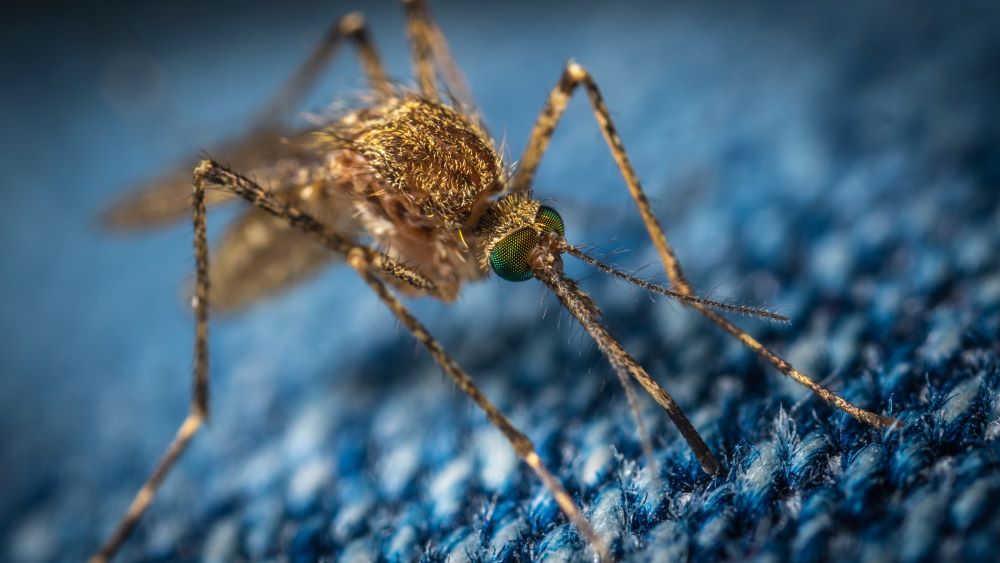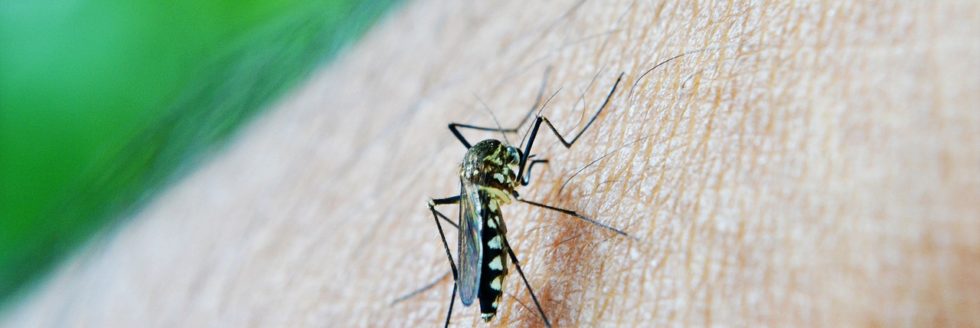How to Keep Mosquitoes Away
With North Carolina’s humid weather and hot temperatures here, mosquitoes are bound to arrive on your property. While these pests are a major nuisance, mosquito bites can also be a health threat, known to spread serious diseases to your family and pets.
While there are lots of ways to keep mosquitos away, the best method is combining any at-home fixes with a mosquito pest control company. In the article below, we offer a few do-it-yourself preventative measures you can use in combination with pest control services.
Contents
- Professional Mosquito Control
- DIY At-Home Mosquito Management
- Why Worry About Mosquito Control?
- Why Do Mosquitoes Whine?
- Mosquito Prevention FAQs
Professional Mosquito Control
With all the effort you put towards preventing mosquitoes, sometimes it can still feel like a never-ending battle. If you feel like your mosquito problem is more than you can handle, it’s probably best to call your local Carolina mosquito control company.

These professionals will be able to provide you with various treatment options that target both adult and larvae mosquitoes. Spray treatments used by professionals don’t break down as quickly as DIY products and typically only require re-application monthly.
You can typically get these services monthly during peak mosquito season so that you can enjoy your summer! Any treatments used will be both pet and children-friendly.
Many professional pest control companies also offer green mosquito control, which effectively manages mosquito populations, but with less risk to your family.
DIY At-Home Mosquito Management
While mosquitos are common pests, there are things you can do to less their impact on you and your family. The following steps will help you remain bite-free during the height of mosquito season.
1. Use Bug Repellent
Although a short-term solution, insect repellents are useful when spending time outdoors in areas with an active mosquito population.
Active ingredients in EPA-registered mosquito repellents often include:
- DEET
- Picaridin
- Para-methane-diol
- 2-undecanone
- IR3535
- Oil of lemon eucalyptus
- Catnip oil
- Citronella oil
Chemical vs Natural Mosquito Repellant
Researchers have found that chemical repellents provide one of the most effective methods for avoiding mosquito bites.
Natural remedies – such as using cinnamon, lemon eucalyptus, castor, lavender, or tea tree oil – smell nice but are less effective and must be reapplied more frequently.
As for repellent wristbands and clip-on fans, independent testing conducted by Consumer Reports found them ineffective at warding off mosquitoes.
How to Safely Use Mosquito Repellent
The EPA recommends carefully reading product labels before choosing an insect repellent. The repellent may only work against mosquitoes or use a combination of ingredients to prevent tick bites as well.
To apply bug repellent properly:
- Aim the nozzle from at least four inches away and spray directly onto the skin or clothes.
- Sunscreen should be applied first before bug repellent.
- Reapply after swimming or once you notice the mosquitoes are biting again.
- Spray and lotion bug repellents are the best when it comes to protecting against mosquitoes.
2. Watch What You Wear
Long-sleeve shirts and pants offer full body protection from mosquitos. Choose fabrics carefully; thick cotton clothing works best since mosquitoes can bite through thin materials like spandex. The color of your clothing will also influence whether mosquitoes are drawn to you. Research has proven that mosquitoes are attracted to dark-colored clothing.
Areas that are left uncovered- such as your neck, hands and face- can be protected through the application of insect repellent. Be mindful to not spray bug repellent directly on your face. Instead, apply to your hands and rub onto the skin—being careful to avoid the eyes and mouth.
3. Avoid Wearing Fragrance
Mosquitoes have an excellent sense of smell and are attracted to people wearing perfume, cologne, scented lotion, or anything that has a fragrance. Avoid applying topicals that contain a scent.
4. Stay Indoors
Mosquito activity is at its height in the early morning and early evening hours. If possible, stay indoors during these times of day.
You should also avoid exercising outdoors since mosquitoes are drawn to the chemicals released when you are perspiring or breathing heavily. While indoors, use screens to keep mosquitoes from coming into the house.
If that option is not available, you should sleep under a bed covered with mosquito netting. There are also netting products sold to protect children from mosquito exposure. Purchase nets that cover cribs, baby carriers and strollers. This is very important to do, especially if you have a newborn since bug repellents are not recommended for children younger than two months old.
5. Remove Standing Water
Female mosquitoes breed in standing water, only needing a small amount to do so. By eliminating breeding sites, you’ll help to reduce their activity and population around your home.
Look around your yard for any low laying areas that are known to flood or pool water, fill these areas up with either dirt or mulch. Remove any items that could collect water too, such as old tires, pet bowls, tarps, pots, or furniture. Containers such as barrels, buckets, pet bowls, planters and trashcans can collect rainwater.
Kiddie pools can become problematic as well, but other types of swimming pools should be fine. The chemicals used to make swimming pools safe for swimming will also ward off mosquitoes.
Remember to check your gutters too since clogged gutters can become a breeding site for mosquitoes.
6. Yard Maintenance
A common misconception is that mosquitoes require blood to survive. In fact, mosquitoes will also feed on nectar, so they are drawn to certain tall grasses and shrubs. Trim back vegetation in your yard to prevent mosquitoes from gathering too close to your home or deck. You could also plan out your landscaping to include plants that act as a natural repellent to mosquitoes.
The following plants repel mosquitoes:
- Citronella
- Catnip
- Peppermint
- Basil
- Lavender
- Marigold
Clean Up Yard Debris
Piles of leaves and twigs should be removed from the yard since they are an alternative breeding ground when standing water isn’t available.
Add Citronella Tourches
Get rid of mosquitoes by burning citronella torches or candles; the smoke will help keep mosquitoes away. In addition, consider planting some citronella in the backyard so you can simply break off a twig and rub it on skin.
Consider Mosquito Netting
Create a mosquito free haven for guests with mosquito netting or another clear covering designed for outdoor use. You can craft your own outdoor room in which guests can stay comfortable and bite-free.
Install Trapping Machines
Install a trapping machine that uses carbon dioxide and heat to attract and trap or kill pests. Many people report that the systems are effective, but they won’t create a completely mosquito free yard.
Avoid electric bug zappers, which often kill non-harmful insects.
Add a Bat Box
You also can take steps to make your garden friendly to nature’s most-efficient mosquito predator: bats. One bat can eat as many as 1,200 mosquitoes in an hour!
How to Stop Mosquito Bites at Night
To protect yourself from mosquitoes that are active at night, try some of these tips before bedtime.
- Turn a Fan On – Mosquitoes are not strong flyers, so the draft of the fan can keep them at bay.
- Cover Exposed Skin – If comfortable, you can sleep in long-sleeved shirts and pants.
- Keep Windows Shut – Plus, make sure window screens don’t have any holes.
- Use a Mosquito Net – Nets offer an additional physical barrier that prevents mosquitoes from biting you while you sleep.
- Use Mosquito Traps – Mosquito traps can attract and capture mosquitoes using heat, light, and other attractants, reducing the number of mosquitoes in your home.
Why Worry About Mosquito Control?
Mosquitoes are more than just a warm weather annoyance. Mosquito bites are uncomfortable and cause itching and swelling. In some cases, mosquitoes can even transmit viruses to both humans and pets.
According to the Mother Nature Network, on a worldwide scale mosquito-borne diseases account for the yearly death of nearly one million people.
Mosquitoes are much more than nuisance pests. Mosquitoes are such a serious threat that the Centers for Disease Control has a dedicated department researching and treating mosquito-borne diseases. Diseases that have been associated with transmission through mosquito bites include:
- Zika virus
- West Nile virus
- Malaria
- Dengue
- Chikungunya
In the majority of cases, a mosquito bite will only cause slight discomfort. Common symptoms include itching, redness, and swelling at the bite site. Some individuals will become ill after a bite if the mosquito was infected. Anyone who has been bitten by a mosquito should contact a doctor if they experience any of the following symptoms:
- Fever
- Chills
- Headache
- Nausea
- Vomiting
- Confusion
So, we see that mosquito control is not merely about taking back your Carolina yard. It’s primarily about keeping your family and pets safe.
What Types of Mosquitoes Does Charlotte Have?
The main differences between these mosquitoes are their biting habits and the diseases they can transmit.
Northern House Mosquitoes (Culex pipiens): These mosquitoes are found throughout North America and are common in residential areas. They are known for breeding in stagnant water, such as ponds, pools, and bird baths. Northern House Mosquitoes are most active at dusk and are known to transmit diseases such as West Nile Virus.
Asian Tiger Mosquitoes (Aedes albopictus): These mosquitoes are native to Southeast Asia but have spread to other parts of the world, including the Americas, Europe, and Africa. They are known for their distinctive black and white striped legs and aggressive daytime biting habits. Asian Tiger Mosquitoes are known to transmit diseases such as dengue fever, chikungunya, and Zika virus.
Eastern Saltmarsh Mosquitoes (Aedes sollicitans): These mosquitoes are found along the eastern coast of North America and breed in salt marshes and other coastal habitats. They are most active at dawn and dusk, but females will bite at any time of day if they are disturbed. Eastern Saltmarsh Mosquitoes are known to transmit diseases such as Eastern Equine Encephalitis.
Why Do Mosquitoes Whine?
First off, it is not the sound of rapid-fire flying. In fact, scientific studies have proven that the buzz of female mosquitoes plays an important role in the mosquito-mating plan. Being larger than their male counterparts, female mosquitoes do not flap their wings as quickly as the males. This creates a distinctive whine that male suitors easily identify as female. In fact, nearly a hundred years ago Dr. Christopher Johnston out of Baltimore, Maryland discovered that mosquito antennae come equipped with an organ specifically evolved for the purpose of recognizing other mosquitoes.
The whine actually comes from a toothed organ at the base of the mosquito’s wings. It’s not a flapping in the wind that makes the buzz. Rather it is the sound of scraping produced by the toothed organ as the wings move. More recent research has even concluded the whine as singing. When females and males get near to one another, they actually alter the pitch of the buzz.
Mosquito Prevention FAQs
How bad are mosquitoes in Charlotte, NC?
Each year, Orkin releases a list of the top mosquito-infested cities in the U.S. In 2018, Charlotte was ranked at position nine. Since then, Charlotte has dropped to position 18, according to the 2022 list. The humidity and warm weather in the greater Charlotte area make our climate a desirable breeding ground for mosquitoes.
When is mosquito season in Charlotte?
Mosquito season in North Carolina falls between April and October when the weather turns warm and humid.
Do mosquitoes die after they bite?
Unlike bees, mosquitoes do not die after they bite. In fact, mosquitoes can continue to bite multiple times within one sitting.
When do mosquitoes stop biting?
As temperatures drop below 50 degrees, mosquito activity begins to slow down. Adult male mosquitoes typically die after the fall mating season, while the females stay alive and hunker down to sleep through the winter.
What Can I Eat to Stop Mosquitoes From Biting Me?
Unfortunately, eating foods like garlic and onions to prevent mosquito bites is just a myth. There are no foods you can eat to keep mosquitoes away. However, studies have shown that avoiding alcohol can help. Mosquitoes are attracted to the odor of beer.
In Summary: Combine Professional Mosquito Removal With At-Home Fixes
Citronella candles, bug repellents and repellent bracelets may prevent mosquito bites, but won’t remove the insects from your property. Instead, focus on getting rid of mosquito attractants and using eco-friendly mosquito control methods. If home remedies aren’t doing enough to keep mosquitoes at bay, consider calling on professionals.
How Carolina Pest Management Can Help
Carolina Pest Management offers mosquito-control methods that fit your needs and lifestyle using traditional or botanical-based products. We work with each client to develop effective strategies to eliminate mosquito populations.
For over 75 years, we’ve served homes and businesses located in the Carolinas, making customer satisfaction our top priority. Contact us online or call 704-283-1527 to discuss how we can help with your home’s mosquito control.


